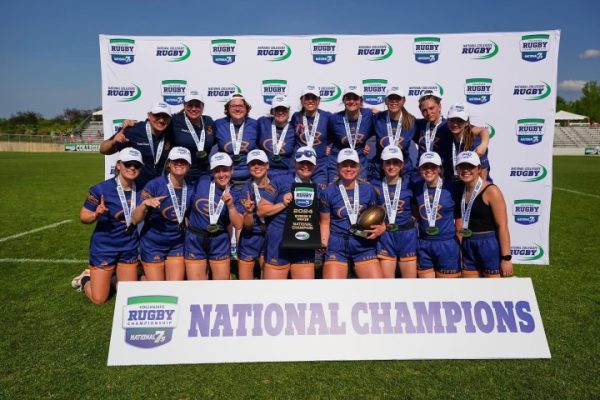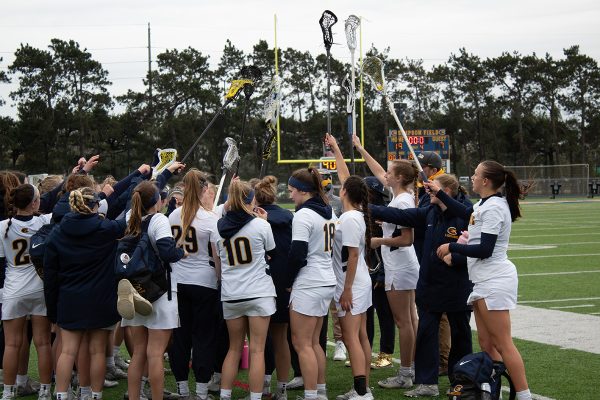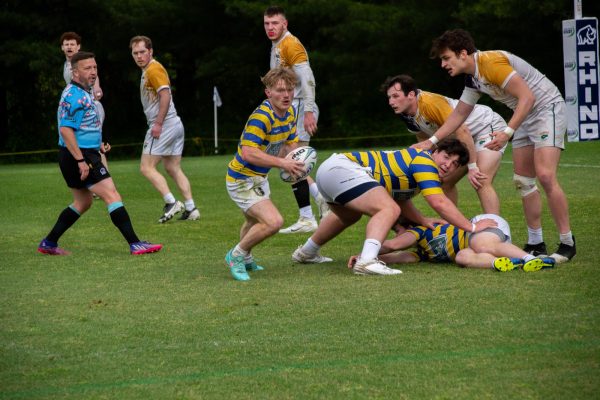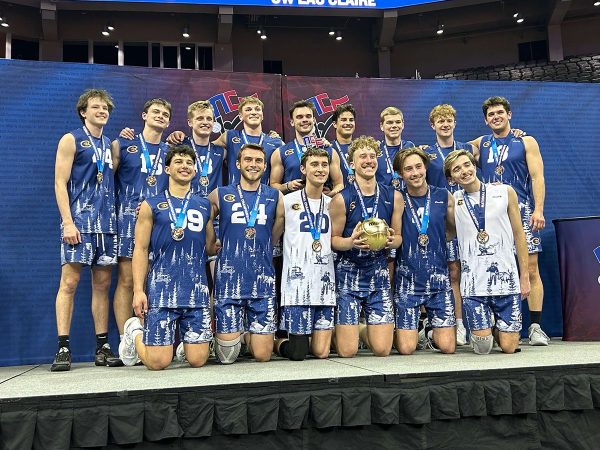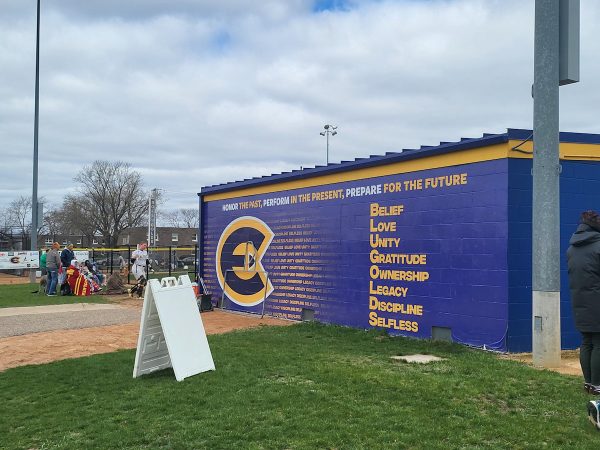Sports Specs with Sam
Are Aaron Rodgers’ days in Green Bay numbered?
Photo by SUBMITTED
It has been a busy offseason for Aaron Rodgers, the quarterback of the Green Bay Packers (for now) and the 2020 NFL’s Most Valuable Player.
Rodgers announced his engagement to actress Shailene Woodley in February, filled in as the host of Jeopardy for two weeks and launched an online sports platform called the Online Sports Database with his friend actor Ryan Rottman.
Despite him turning in one of the best seasons of his career and winning the MVP last season, ever since the team drafted Jordan Love in last year’s draft, speculation has been rampant about when Rodgers will exit Green Bay and under what terms.
This speculation intensified again when Rodgers discussed his future with the organization on the Pat McAfee Show earlier this month.
Rodgers had this to say about his uncertain future with Green Bay:
“My future, really, a lot of it’s out of my control,” he told McAfee. “All I can do is play my best, and I feel like last year I did do that, and may have thrown a wrench into some timelines that have been thought about or desired.”
In other words, after drafting Love in the first round last year, the organization may have planned to move on from Rodgers maybe even as soon as this year, but after Rodgers played as well as he did, he’s forcing them to leave him in the lineup.
The decision to draft Love last year was criticized by many, and it seemed like a strange decision for a team fresh off an NFC Championship appearance to choose that route — using their first-round pick on a player who was never going to see the field instead of addressing their needs.
Most of the needs Green Bay should have addressed last year still loom large this year, and after the re-signing of Aaron Jones, Green Bay’s star running back, they had almost no cap space.
This forced them to largely sit out free agency in typical Green Bay fashion this year — short of the resignings of Jones, Kevin King and Marcedes Lewis.
The biggest need Green Bay has to address is the wide receiver position. Davante Adams is one of the best receivers in the game, but aside from him, Rodgers has a fairly weak cast of characters to throw to.
Many speculated Green Bay would take advantage of last year’s stacked class of rookie receivers and draft one in the first round to help out Rodgers. Instead they drafted his eventual replacement.
When Rodgers was playing out of his mind last year, it felt like one big middle-finger to the Packers organization at times. However, Rodgers has said he remains at peace with his future even though he knows even as one of the greatest players of all-time, he does not have ultimate control of his future.
Green Bay should reward their all-time great by doing what they should have done last year and drafting a wide receiver in this year’s draft.
One candidate that has been brought up in recent mock drafts is Rashod Bateman, the star receiver from the University of Minnesota.
Bateman had an impressive performance in the combine and proved himself in his time at Minnesota as a force to be reckoned with as a talented route runner and playmaker.
If he was lined up on the other side of the field with Adams in Green Bay, Rodgers might even surpass his amazing stats from last year.
Ultimately, Rodgers’ contract will probably be what leads to his eventual departure from Green Bay, whether that’s a year from now or further down the road.
The two sides have reportedly negotiated about restructuring Rodgers’ current deal, but no progress seems to have been made.
His contract is an issue because due to financial losses due to the COVID-19 pandemic, the NFL’s salary cap has lowered for this next season by around 20 million dollars, which is part of the cause for Green Bay’s lack of cap space.
Green Bay’s goal was probably to restructure Rodgers’ deal to give him more money in the future and lower his current salary in the process to essentially “back-load” his deal.
However, if this was the offer they made, Rodgers clearly denied it, and few could blame him. Rodgers should not have to make any more compromises for an organization that owes him so much and has failed to prioritize the face of their franchise once again.
In the end, as soon as Roger Goodell called Love’s name on stage at the draft last year, the writing was on the wall that Rodgers probably would not be ending his career in Green Bay.
The least the Packers organization can do is help their franchise’s star (and the only reason they have been competitive for most of the last decade despite poor draft strategy) make one more run at a Super Bowl in Titletown this year.
Next week’s draft will be an important indicator of where the Packers organization is headed.
Janssen can be reached at [email protected].

Sam Janssen is a fourth-year journalism student with a psychology minor. This is his fifth semester with The Spectator. In his free time, he enjoys being an avid sports fan and playing the guitar.


